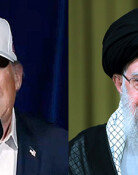[Focus] Will U.S. military presence in Korea change?
[Focus] Will U.S. military presence in Korea change?
Posted December. 18, 2000 15:26,
United States Secretary of State nominee Colin Powell made it clear in his acceptance speech that the incoming Bush administration would pursue national interests from a position of strength.
He touched on some concrete matters related to military strategies, indicating that he would wield considerable influence on both diplomatic and security affairs.
Drawing our concern was his remarks that as soon as the new administration is launched, he will make an overall review of U.S. military deployments around the world. The secretary of state designate said in particular that he would look closely at deployments in Bosnia, Kosovo and other places throughout the world, and make sure deployments were proper.
For Korea, it is natural for concern about the possible re-deployments of American troops stationed here in the context of the U. S. military realignments in Asia. The present administration has begun a strategical review of American forces both in Korea and Japan. This U.S. move is part of the security environmental change in the Far East following inter-Korean reconciliation and reduction of tension on the Korean peninsula, plus rising antagonistic feelings against the American troops in Korea and Japan.
However, Powell noted that this is not aimed at withdrawing or reducing U. S. troops overseas. Since Powell made specific mention about the deployments in Bosnia and Kosovo, there could be a rapid change in the American forces in Europe. Washington has announced its plan to pull out troops from the NATO peace-keeping forces and re-deploy them to somewhere in the Middle East or other troubled areas of the world.
This plan may have bearings with the EU maneuvering to create a rapid-deployment force in a scheme to get rid of the American military umbrella.
The secretary of state nominee has maintained his doctrine calling for U. S. military intervention with massive and rapid military strength only when it has a cause and objective, as well as overwhelming support from the people.
Powell argued that despite criticism of the national missile defense (NMD) system from Russia, China and allied European nations, NMD is an essential part of a strategic force system, suggesting that the incoming administration would push ahead with the plan.
"We have to spend time with other nations that possess strategic offensive weapons to understand their thinking in respect to a national missile system," Powell said. His statement was to acknowledge that there would be difficulties in pursuing the NMD program.
Since the concept is generally based on hard-line policies, actual implementation is likely to stir diplomatic repercussions.




![[단독]폴란드, 韓 해군 최초 잠수함 ‘장보고함’ 무상 양도 안받기로](https://dimg.donga.com/c/138/175/90/1/wps/NEWS/IMAGE/2026/02/27/133437397.1.jpg)
![“‘표심’ 따라 이란 친 트럼프…지독하게 변덕스럽지만 치밀해” [트럼피디아] 〈60〉](https://dimg.donga.com/c/138/175/90/1/wps/NEWS/IMAGE/2026/03/01/133441726.1.jpg)
![‘부화방탕 대명사’ 북한 2인자 최룡해의 퇴장 [주성하의 ‘北토크’]](https://dimg.donga.com/c/138/175/90/1/wps/NEWS/IMAGE/2026/02/27/133414028.1.jpg)
